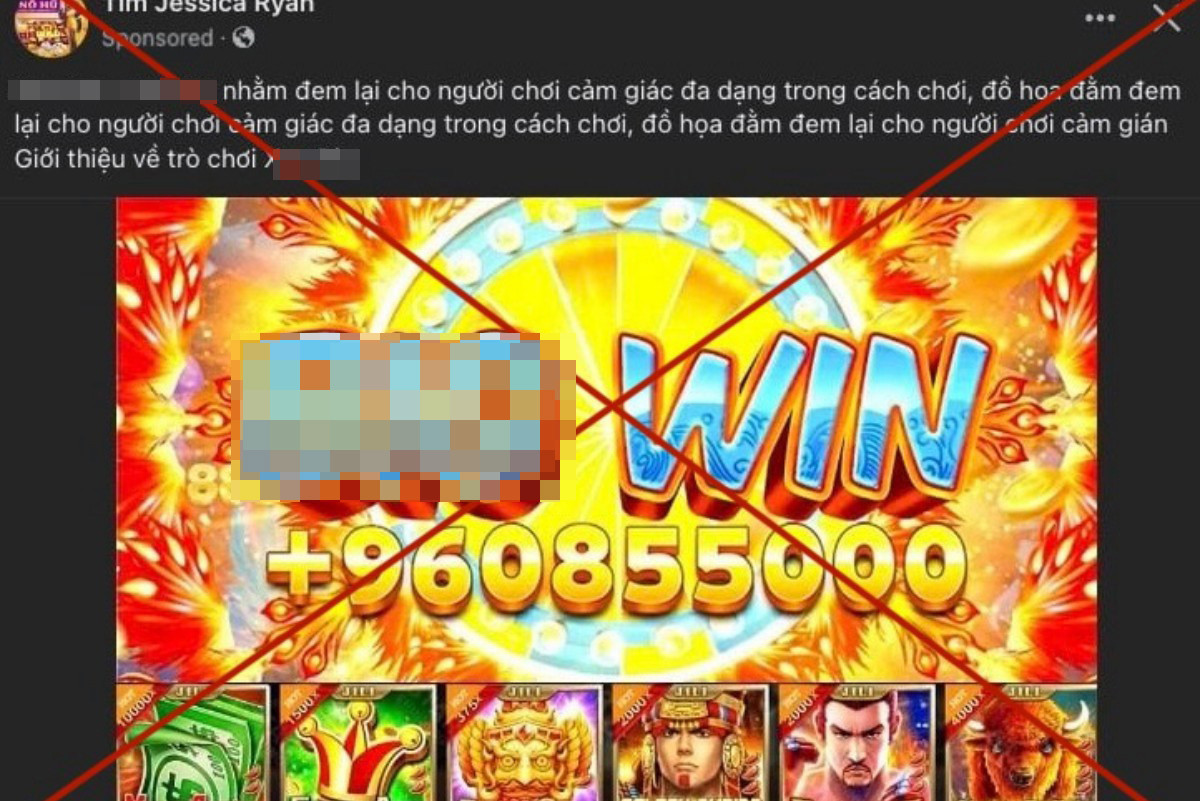
The ads, called by the public as "dirty ads", continue to appear on social network platforms, including YouTube, Facebook and TikTok. The ads are in different forms, from videos on how to play betting games to livestreams on how to become gamers.
Facebook has a lot of sex ads (sponsored) which are videos showing girls in pornographic clothes conducting sexy behaviors, or even showing sex scenes of couples.
In these advertisements, girls or couples invite people to download gambling games or participate in livestream applications to play gambling and betting games.
The Ministry of Information and Communications (MIC) recently has released many decisions on punishing ad agencies that place ads on channels committing violations.
At the regular press conference on May 5, a representative of the Authority of Broadcasting and Electronic Information (ABEI) said punishments have been imposed on over 20 firms that placed ads on violating channels with dirty content. Some of them contain reactionary anti-Party and State content.
ABEI, an arm of the Ministry of Information and Communications (MIC), reported that the business with the most sanctions was WPP Media Ltd. From April 2023 to April 2024 alone, the company was fined four times by MIC.
On April 10, 2023, ABEI imposed a fine of VND15 million on WPP because the company placed ads on a Facebook website that had violating content.
In September 2023, it was fined VND25 million because it placed ads on a channel with content violating the current laws, and did not comply with the regulation on reporting activity of providing cross-border ad services in Vietnam in 2022.
In December 2023, WPP had to pay a fine of VND35 million for placing ads of two other businesses on a YouTube channel with violating content.
In April 2024, it was fined VND55 million after placing ads about two brands into ‘Flight to you’ film, airing on YouTube, which showed the image of illegal nine dashed line.
Also it placed ads about three make-up products on YouTube which had content different from the content approved by watchdog agencies.
Most recently, on May 23, 2024, ABEI released a decision on fining Inverse Media Ltd VND15 million for placing ads about a domestic company on Tin nong 247 (Hot news 247) on YouTube on January 4, 2024, the channel with the content violating the laws and defaming Vietnamese Party and State leaders.
Legal framework needed
The law on advertisement (amended), which has been opened by the Ministry of Culture, Sports and Tourism (MCST) for public opinion, not only contains the regulation on advertising on e-newspapers and e-websites, but also on social networks.
However, experts pointed out that the draft law just mentions ad placement on state-owned e-newspapers and websites, while there is no regulation applied to the websites run by businesses, individuals and other organizations.
There is also no regulation on advertising on social networks.
MIC has recently applied new stiff measures to sanction the violators. The ministry, for example, has decided to release Blacklist, the list of social networks and websites with toxic and law-violating content which brands and ad agencies must not use, and Whitelist, the list of channels recommended for advertisements. The lists are regularly updated.
Offering suggestions to the draft law, MIC said it is necessary to clarify advertising activities on the internet.
Online advertisements include ads on e-newspapers, websites, social networks, online applications, advertising devices using electronic media, terminals and other telecommunication devices connected with telecommunications networks, or the Internet.
Online advertising activities must comply with provisions of the laws on advertisement. For example, online advertisements must have identifying signs in words, symbols or other appropriate forms to allow ad recipients to differentiate between news and ads.
As for advertisements that are not in a fixed area, advertisement publishers and Internet advertising service providers must design features which allow users to turn off advertisements in no more than 6 seconds after the ads start. There must be no more than two consecutive ads, and the total running time for ads can be no more than seven seconds.
Thai Khang